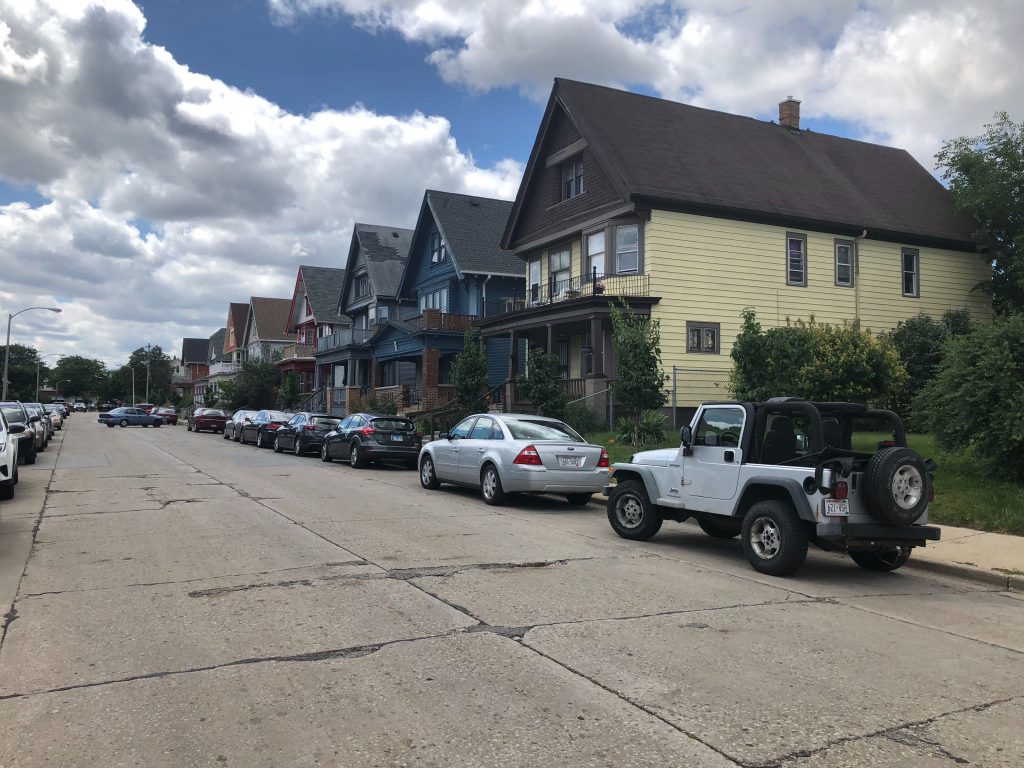Could Affordable Housing Reduce City’s Racial Disparities?
Community Development Alliance has strategic plan to increase Black and Latino homeownership.
Historic racism, state-level meddling and decade-long trends have combined to severely harm the state of affordable housing in Milwaukee. To solve it, a citywide and long-term plan is required, according to Teig Whaley-Smith, the chief alliance officer at the Community Development Alliance and a former Milwaukee County official.
Whaley-Smith spoke Tuesday at a meeting of the Milwaukee Rotary Club about what is needed to reduce racial disparities in homeownership in the city, a problem with branches that extend from the health and education of children to the area’s economic strength.
The Community Development Alliance, along with other organizations in the Milwaukee area, have developed a strategic plan to increase homeownership rates among Black and Latino residents and increase housing affordability for Milwaukeeans earning $7-15 per hour — highlighting the generational wealth that can be created by homeownership.
Part of the problem, Whaley-Smith said, is that new homes have not been built at the rate they were in the past. In the middle of the 20th century, government programs and a growing city combined to build thousands of new homes per year, but because of racist laws and practices against minority homeownership, they were largely built for white residents.
In 1968, the Fair Housing Act was passed, but the rate of new home construction cratered.
“We have lost 20% of the homeowners and Black communities in Milwaukee over the last 10 years,” he said. “This is really devastating, it’s largely through a practice that we refer to as predatory acquisition, where people are coming into neighborhoods and buying up properties that were built for homeowners, homeowners like my grandfather, and instead of selling them to families of color, they’re being bought by investors.”
The group’s review of home-sale data found that among single-family Milwaukee homes priced at $100,000 to $125,000, “50% that were built for homeowners are now owned by investors,” he said. “So we need to switch this trend.”
Whaley-Smith focused on homeownership, but he added that there is a severe shortage of affordable rental homes in Milwaukee: while 75,000 families in the city make less than $15 an hour, there are only 43,000 rental homes available for them.
He also criticized the state government and the Republican majority in the Legislature, which contains a large number of landlords, for blocking Milwaukee’s attempts to improve these issues.
For example, the city attempted to require a person buying a rental property to bring the building up to code — only to have the Legislature pass a law preventing that.
The city also tried to pass a zoning measure that would allow more types of buildings to be constructed, rather than more common zoning rules that restrict things like building height, square footage and how far from the street a home must be — which pushes home construction toward the larger homes more often seen in the suburbs.
“The City of Milwaukee passed what’s called inclusionary zoning,” he said. “So remember when I said that suburban communities have zoned things to require really big properties? We now refer to that as exclusionary zoning: you’re excluding people that can’t build that big house,” Whaley-Smith said. “So the City of Milwaukee actually passed inclusionary zoning because they have to be inclusive and what happened you know, as a pattern here, the state of Wisconsin preempted it.”
The measure was prevented by state law and a 2006 state Supreme Court ruling.
“So that’s why collective action is really important because this impacts everybody in this room,” he continued. “The homeownership rates in Milwaukee have gone down over 10% in the last decade, and it’s not happening in white neighborhoods. And so if we want to keep the homeownership rate up, which benefits everybody in your businesses in this room, we need to change that. So the answer is yes, the City of Milwaukee continues to work on trying to thread that needle, but a lot of this is governed by the state.”
Starting with housing to reduce racial disparities in Milwaukee was originally published by the Wisconsin Examiner.



















